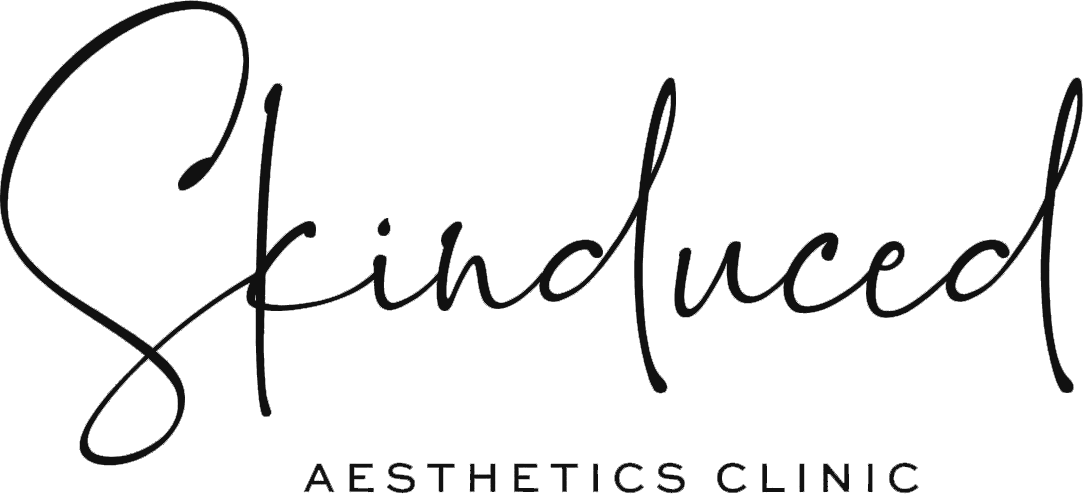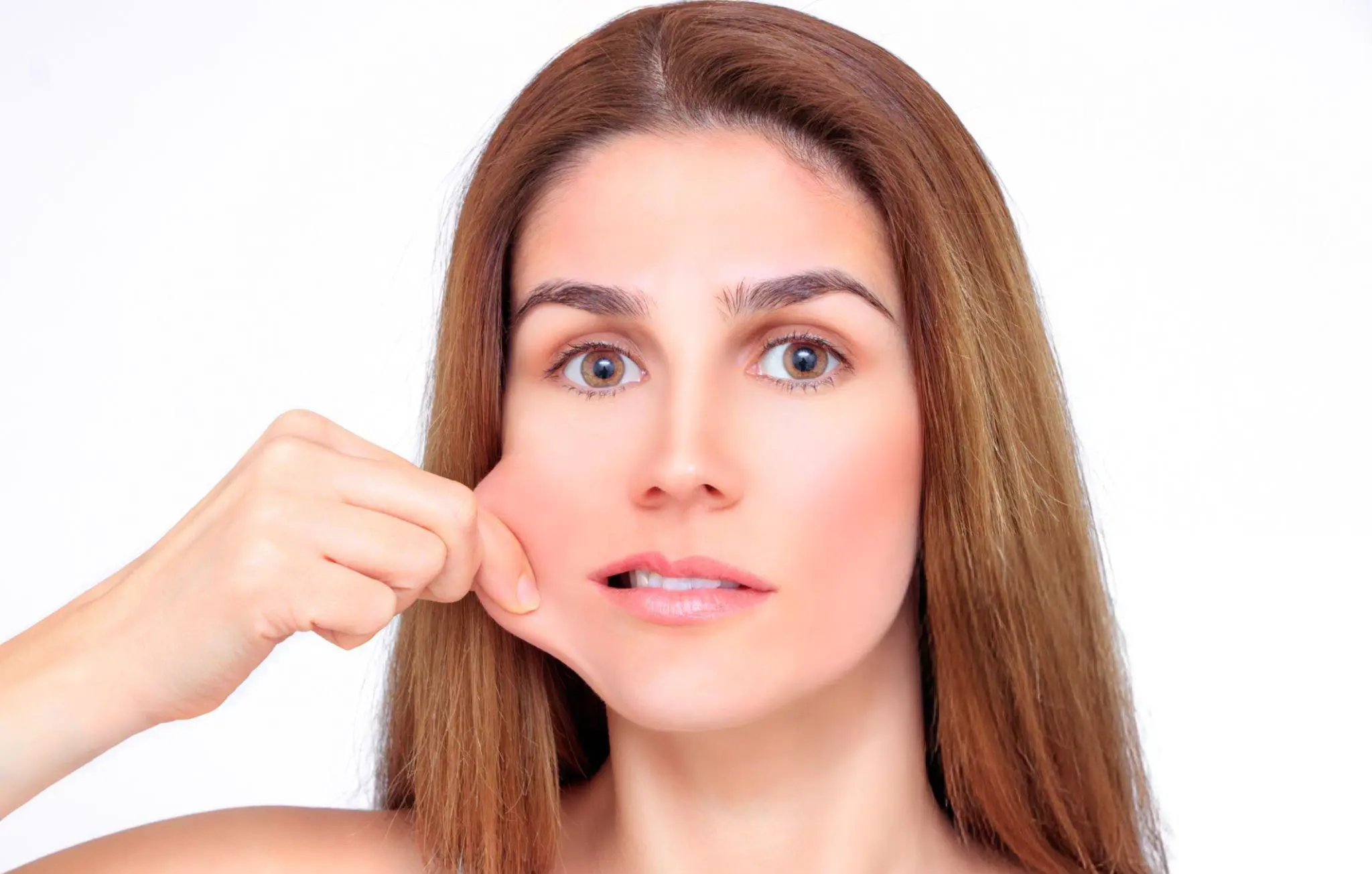5 Common Signs of Collagen Changes in the Face
Your skin tells a story. Every laugh line, every subtle change in texture, every moment you catch yourself reaching for that extra concealer, these are chapters in your skin’s journey through time.
Many people begin noticing skin changes over time, often becoming more noticeable in adulthood. Maybe your cheeks don’t have that same bounce they used to. Your makeup may be different on your skin. You’re not imagining it, and you’re definitely not alone.
What you’re experiencing are the early signs of collagen loss in your face, a natural process that affects every woman, but one that doesn’t have to define your skin’s future. Understanding these skin changes can help inform discussions about general skin care and professional advice.
What Is Collagen and What Is Collagen and Its Role in Skin?
Collagen is a structural protein found in the skin. It contributes to skin strength and support and works alongside other components such as elastin.
Collagen levels and skin structure change naturally over time. The rate and extent of these changes vary between individuals and are influenced by genetics, lifestyle, and environmental factors.
Various internal and external factors may influence skin structure over time, including sun exposure, lifestyle habits, and ageing processes. Individual skin responses vary.
The 5 Most Common Signs of Collagen Loss in Face
Recognising changes in skin structure can help inform general skin care discussions. These signs may become more noticeable over time, with experiences varying between individuals.
1. Loss of Skin Firmness and Sagging
What it looks like: Your jawline isn’t as defined as it used to be. Your cheeks seem to be losing their lift, and you notice slight sagging around your eyes or mouth. This is a commonly reported change in skin structure.
Why it happens: Changes in skin firmness can occur over time due to a range of factors, including ageing and environmental exposure. Individual skin responses vary.
For example: You might notice this when you wake up in the morning sleep lines that used to disappear within minutes now take longer to fade or don’t disappear completely.
2. Fine Lines and Wrinkles
What it looks like: Those expression lines around your eyes, mouth, and forehead start appearing even when your face is relaxed. What were once temporary creases become permanent fixtures. These changes may be associated with alterations in skin structure over time.that indicate your skin’s support structure is weakening.
Why it happens: Skin changes such as fine lines may develop gradually over time. The appearance and progression of these changes vary between individuals.
The progression: Fine lines typically appear first around the eyes (crow’s feet), then around the mouth, and finally across the forehead. These are your skin’s way of showing where collagen loss is most advanced.
3. Dull, Lackluster Skin
What it looks like: Your complexion appears tired, even when you’ve had a good night’s sleep. Some individuals notice changes in skin brightness or radiance over time.
Why it happens: Changes in skin appearance can be influenced by multiple factors, including lifestyle, environment, and natural ageing processes.
The telltale sign: Your usual skincare routine doesn’t give you that same fresh, dewy look it used to. You find yourself reaching for more highlighter or luminous products to recreate that glow.
4. Increased Skin Texture and Roughness
What it looks like: Your skin feels different under your fingertips. It’s not as smooth as it once was, and you might notice more visible pores or an uneven texture. Changes in skin texture are subtle but important signs of collagen loss in face that many women overlook initially.
Why it happens: Skin texture can change gradually over time. These changes may be influenced by ageing and external factors.
How you’ll notice: Your foundation might not apply as smoothly, or you might need to use more primer to achieve that flawless finish.
5. Slower Healing and Recovery
What it looks like: Small cuts, blemishes, or irritation take longer to heal. Your skin seems more sensitive and takes longer to recover from breakouts or minor injuries.
The impact: You might notice that a small scratch takes weeks to fade completely or that some individuals notice that skin recovery times vary over time.
Factors Associated With Collagen Changes
Collagen levels and skin structure change over time. Understanding factors that may influence these changes can help inform general skin care discussions and professional advice.
Sun Exposure and Skin Changes
Sun exposure may influence skin structure over time. Individual responses to environmental factors vary, and cumulative exposure can affect how skin changes with age.
Sun protection is commonly recommended as part of general skin care advice, particularly following aesthetic treatments. Even on cloudy days in Newcastle, UV rays can penetrate through clouds and windows.
Lifestyle Factors Associated With Skin Changes
-
Smoking: May influence overall skin health over time
-
Dietary patterns: Nutritional habits vary and may influence general wellbeing
-
Alcohol consumption: Excessive intake may affect skin appearance in some individuals
-
Sleep patterns: Adequate rest supports general health
Environmental Factors
Environmental and lifestyle factors may influence how skin changes over time. Individual exposure and skin responses vary.
Approaches Commonly Discussed for Collagen Changes
Collagen levels and skin structure change over time. Various approaches are discussed in relation to skin care and aesthetic treatments, with suitability depending on individual assessment and clinical advice.
Clinical Treatments Discussed in Aesthetic Practice
Morpheus8 Microneedling with Radiofrequency Morpheus8 is a device-based treatment used in aesthetic practice. It combines microneedling with radiofrequency energy. Suitability and expected outcomes vary and require individual clinical assessment.
PRP (Platelet-Rich Plasma) Therapy PRP therapy involves the use of a person’s own blood components in an aesthetic setting. Treatment suitability and outcomes vary between individuals and should be discussed with a qualified practitioner.
Laser Genesis Laser Genesis is a non-ablative laser treatment used in aesthetic clinics. Individual response and treatment planning depend on skin condition and clinical assessment.
Skin Boosters Skin booster treatments involve injectable products used in aesthetic practice. Their role, suitability, and outcomes vary and require professional consultation.
General Skin Care Considerations at Home
Topical Treatments:
-
Retinoids: Used in skincare routines under professional guidance
-
Vitamin C serums: Commonly included in skincare products
-
Hyaluronic acid: Used to support skin hydration
Lifestyle Changes:
-
General dietary habits vary between individuals
-
Adequate hydration supports overall wellbeing
-
Sleep and stress management are part of general health
When a Professional Assessment May Be Considered
A professional skin consultation can help assess individual skin characteristics and discuss available options. Any recommendations are based on personal assessment and clinical suitability.
General Information and Considerations
Information provided here is general in nature and does not replace individual medical advice. Skin changes vary between people, and suitability for any treatment requires professional assessment. If you have concerns about your skin, a consultation with a qualified practitioner can help determine appropriate options based on your individual needs.
The most important thing to remember is that collagen loss is treatable. With the right combination of professional treatments, proper skincare, and lifestyle changes, you can restore your skin’s firmness, bounce, and glow.
Your skin’s story doesn’t have to be one of decline. With the right care and attention, the next chapter can be about renewal, confidence, and feeling beautiful in your skin.
Ready to take action? If you’re noticing any of these signs of collagen loss, it’s not too late to act. At Skinduced Aesthetics Clinic, we offer advanced collagen-boosting treatments tailored to your skin’s needs from PRP to Morpheus8.
For appointment enquiries, please contact the clinic directly.
Frequently Asked Questions
At what age should I start worrying about collagen loss?
Collagen levels change naturally with age, and people may notice skin changes at different stages of life. Experiences vary between individuals, and visible changes do not occur at the same time for everyone.
How long does it take to see results from collagen treatments?
Response timelines vary depending on the individual, treatment type, and personal skin factors. A qualified practitioner can discuss what may be expected based on an individual assessment.
Can I prevent collagen loss completely?
Collagen loss is a natural part of ageing and cannot be completely prevented. General skin care practices and lifestyle factors may influence how skin changes over time, but outcomes vary between individuals.
Are collagen supplements effective?
Evidence around supplements and topical products varies. Suitability and effectiveness depend on individual circumstances, and no single option is appropriate for everyone.
How often should I get professional collagen treatments?
Treatment frequency varies depending on the individual, skin concerns, and the type of treatment considered. A qualified practitioner can advise based on personal assessment.


